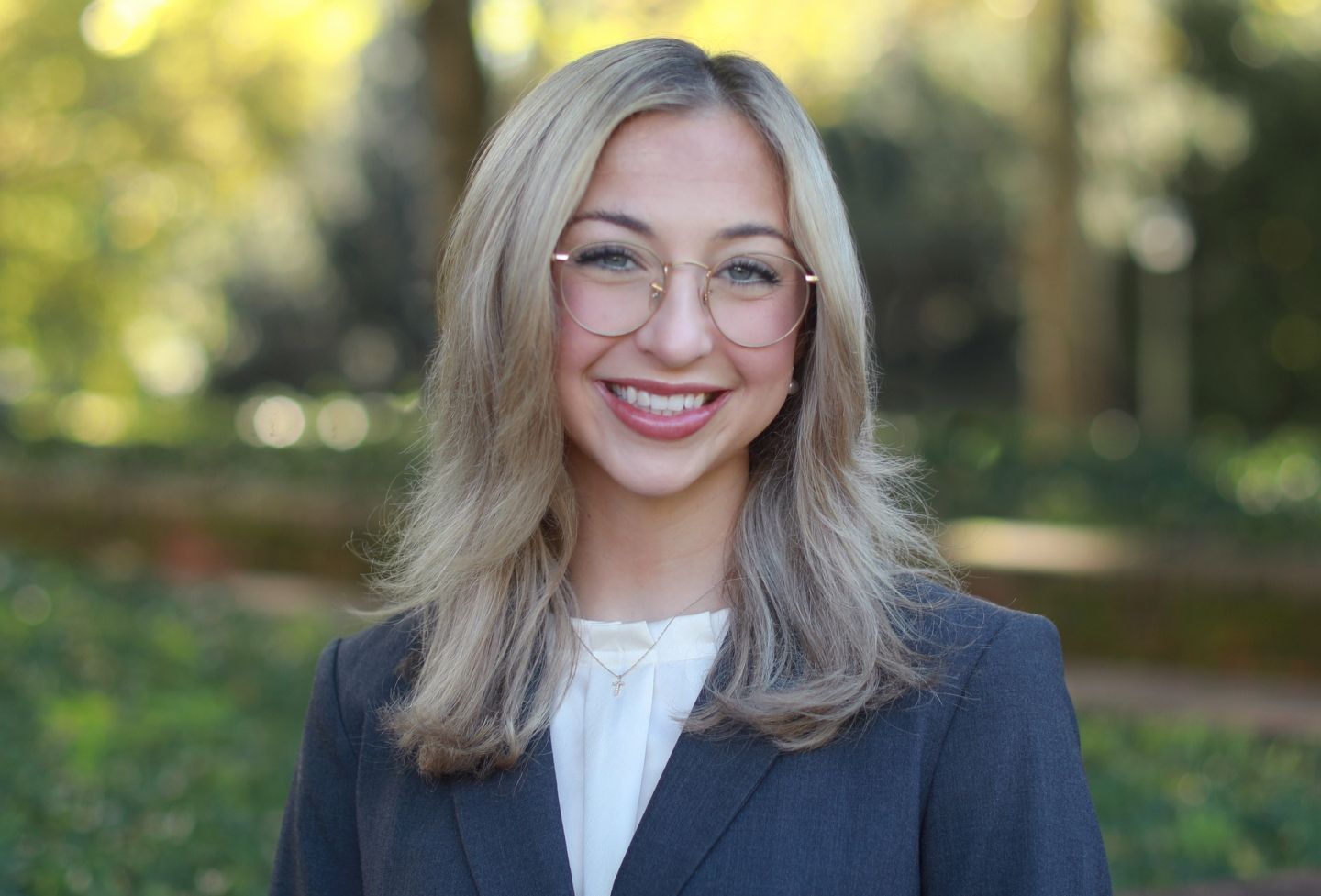Each year, accomplished lawyers from around the world join the University of Virginia School of Law’s Graduate Studies Program to obtain an American legal education.
Among this year’s crop of students are a trio of Fulbright scholars pursuing their master’s degrees: Marilyn Hajj of Lebanon, Sebastián Garay of Argentina and Charlotte Montory Muñoz of Chile.
They join the 65 students from 19 countries in the program who are working toward either a master of laws, the LL.M., or a doctor of juridical science, the S.J.D.
By maintaining a small and highly selective program, in which graduate students take classes alongside J.D. students, the Law School helps ensure that participants fully engage in the community.
Marilyn Hajj
In Lebanon, where she earned her bachelor’s in Lebanese and French law, Hajj is treasurer and a co-director of a nongovernmental organization called FoodBlessed. Its mission is to fight both hunger and food waste.
The organization is unique, Hajj said, because it is entirely volunteer-run and because it welcomes members of different faiths to participate. The country has suffered historically from religious divisiveness, which contributed to a 15-year civil war. Hajj was one of the first four members of the organization, which began in 2012. Today, more than a thousand volunteers participate.
“We don’t rely on sponsors,” she said. “So it’s very transparent, and it’s also very human.”
Her Fulbright is coordinated through Amideast, a U.S. nonprofit organization that offers learning and training opportunities meant to help foster positive relationships between Americans and people of the Middle East and North Africa.
In addition to her law degree, Hajj has a background in accounting and is interested in a career in tax law. She said she looks forward to taking classes from well-known tax law professors such as Ruth Mason, and that, ultimately, she wants to become an academic. She chose UVA Law in part because it is “one of the best tax schools in the world.”
Her past experience includes being a project manager for a legal app, a legal intern for a law office and a summer student at The Hague Academy of International Law.
She earned her bachelor’s in law from the Saint Joseph University in Beirut and a master’s in corporate law from Saint Joseph University of Beirut. Hajj previously earned a degree in street dance and speaks four languages.
Sebastián Garay
Garay has worked at the Supreme Court of Argentina for the past decade. Having started as a private secretary to one of the justices, he now serves as administrative clerk, a role which involves case supervision, dealing with attorneys directly, and the drafting of judicial decisions.
He is interested in learning more about federalism within the U.S. legal system.
Garay said Charlottesville is a nice change of pace from the more hectic Buenos Aires, with one exception: “We have in common [a] great amount of humidity.”
The Fulbright process allows candidates to choose four schools to which they wish to apply. Garay included UVA Law on his list because he was interested in learning from Professor Frederick Schauer, a widely translated expert in legal theory, among other topics.
“Fulbright helped me to narrow it down, and I found [UVA Law] was a good fit for what I was looking for in a university,” he said.
Garay has benefited from past international education experiences, including as an exchange student at the University of Texas at Austin and a summer student taking a course at the University of Cambridge.
He earned his law degree from the University of Buenos Aires and has a diploma in arbitration from Austral University in Argentina.
Charlotte Montory Muñoz
Montory Muñoz not only had the good fortune of landing a Fulbright scholarship, but she also earned a competitive Chilean scholarship to attend UVA.
Having recently been an attorney for a firm that practices mostly private law, she hopes to focus on criminal law when she returns home, while teaching part-time. She intends to learn as much as she can about the American criminal justice system while she is here.
She is currently taking Criminal Law with Professor Kimberly Kessler Ferzan. The class, Montory Muñoz said, has already introduced her to the “cold call,” in which a student is asked to answer questions about a case on the spot. The practice isn’t common in Latin American law schools.
“Cold calls are new for me and kind of difficult because you may have the answer, but in Spanish, so the time it takes [to answer] is a little bit longer,” Montory Muñoz said.
But Ferzan was reassuring. “Keep going, you are doing fine,” the professor told her.
Montory Muñoz also wants to return to academic writing, something she hasn’t done since obtaining her law degree from Austral University in Chile. To that end, she is taking two seminars that require papers as the final product.
Founded in 1819, the University of Virginia School of Law is the second-oldest continuously operating law school in the nation. Consistently ranked among the top law schools, Virginia is a world-renowned training ground for distinguished lawyers and public servants, instilling in them a commitment to leadership, integrity and community service.


